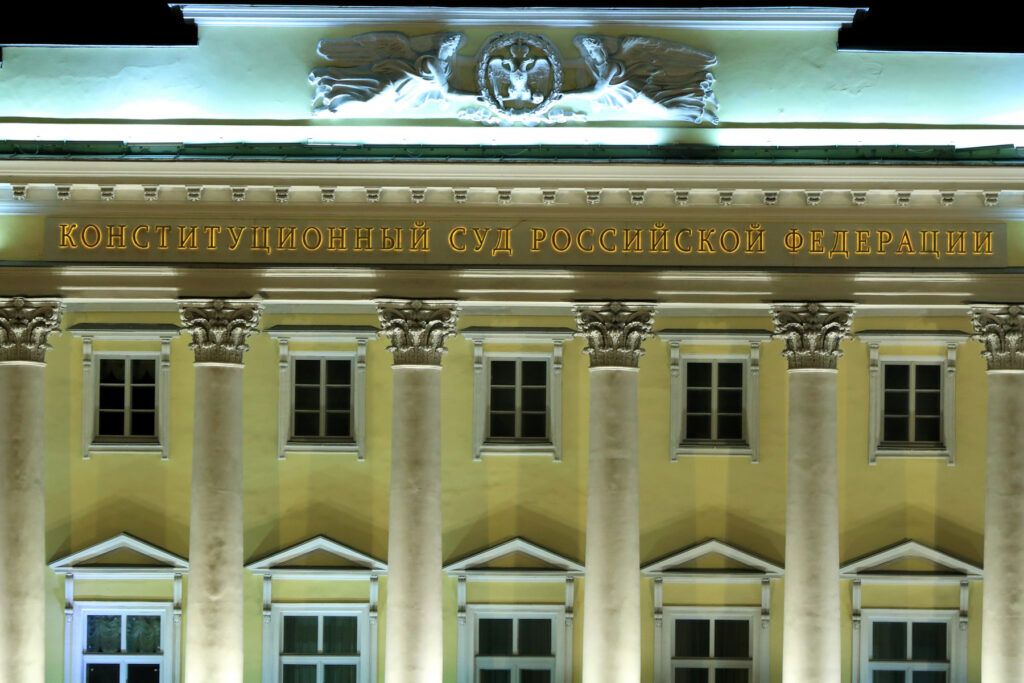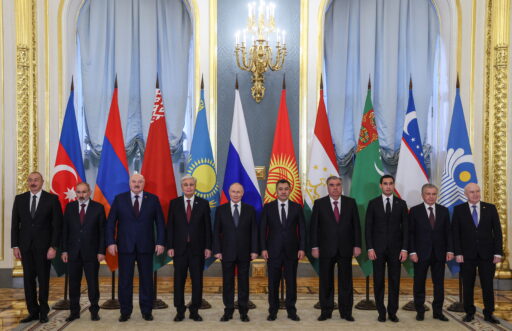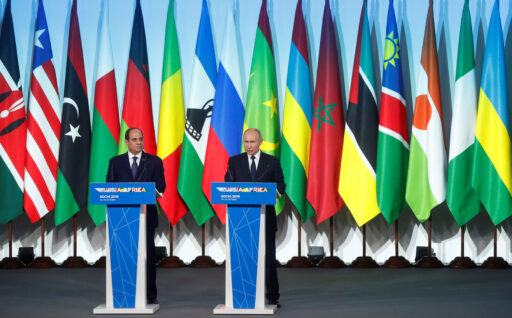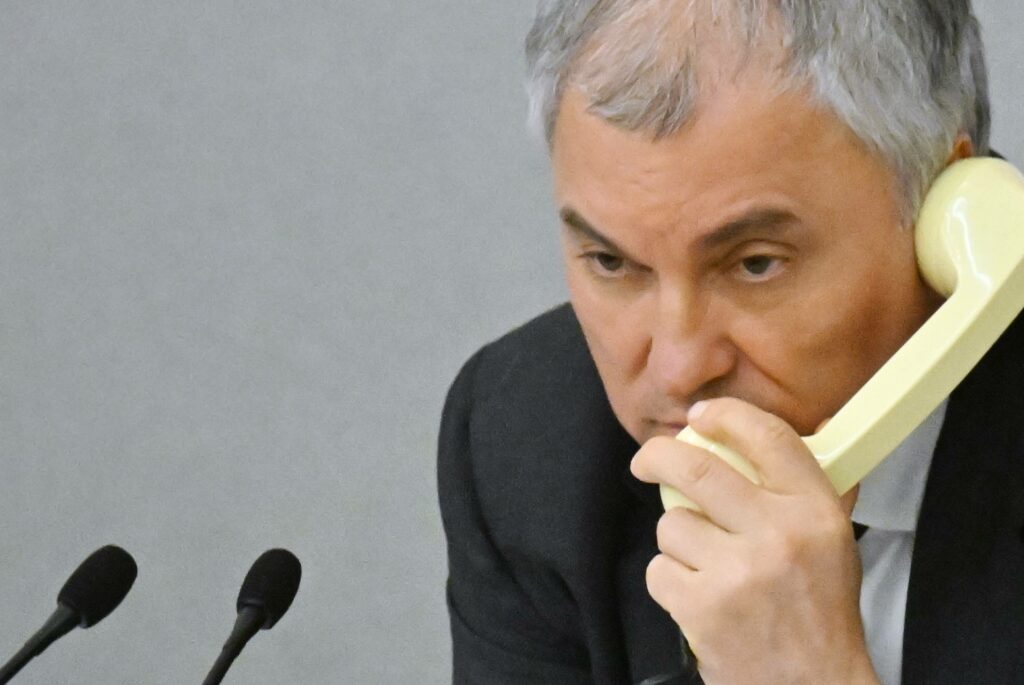In October, the Russian Duma approved presidential amendments to the law on the Constitutional Court (CC). The amendments limit the independence of the Court. They expand the list of grounds for depriving judges of their powers and reduce the number of judges on the bench. Elsewhere, they give the Court new rights to enforce decisions of international bodies.
By the second reading, the bill no longer contained reference to how dissenting opinions of judges get published. In fact, the new version states that judges are not allowed to publish dissenting opinions in any form or refer to them publicly (Article 76). So despite the absence of a formal ban on issuing dissenting opinions, their number and public influence will decrease.
What are dissenting opinions?
In constitutional courts, decisions are adopted collegially by a majority of votes. A judge who disagrees with the outcome of the proceedings is entitled to write a dissenting opinion and state his or her point of view. The judge can also write a simple opinion if he/she agrees with the outcome of the case, but not with the reasons behind the decision. Individual opinions have no legal force. Still, they are designed to show that judges are impartial in settling disputes and that they consider different perspectives on interpreting the law. Of course, lack of unanimity can harm the court: the parties and public authorities may suspect decisions as partly based on the judges’ personal views.
The right to write dissenting opinions in not given to judges in all countries. For example, in Belgium and France such opinions are prohibited. In Italy, they are not published so as not to undermine the confidentiality of court proceedings. The best known dissenting opinions are those of Supreme Court judges in the United States, largely because of the judges are clearly divided by their political views. But even here there are some questions why judges write so few dissenting opinions when there is obvious ideological disagreement on most issues.
In non-democratic regimes, the question looks different: what motivates judges to write dissenting opinions? It is generally accepted that judges in such countries are controlled by the authorities. So they rarely speak out against them, especially in public. Moreover, courts are more likely to be attacked by the executive branch of power, so judges risk not only their jobs but also their lives. Regardless of the political regime, it takes extra time and effort to write a dissenting opinion, so judges often prefer to ‘remain silent’.
Dissenting opinions in Russia’s Constitutional Court
In Russia, despite the undermined independence of the court and the ‘obedient’ behaviour of judges in cases on the annexation of the Crimea, some judges became well-known precisely for their dissenting opinions. For instance, Judge Anatoly Kononov published a book of his dissenting opinions. And the opinion of Judge Konstantin Aranovsky stating that it is inadmissible for Russia to be recognised as the successor to the USSR caused a thunderstorm in the mass media.
These and other opinions often annoyed the authorities. Constitutional court judges quite often exercise their right to publicly disagree with the majority. In 1992–2019, the CC adopted 629 decisions, of which 119 (19%) had at least one dissenting opinion and 47 (7.5%) had an opinion which disagreed with the majority. However, 41 decisions (6.5%) contained two or more dissenting opinions. A landmark case was the one where the constitutionality of acts around the deployment of troops into Chechnya in 1994 was examined: eight out of 18 judges issued their dissenting opinions.
Over time, the number of dissenting opinions shrank (Figure 1). During Yeltsin’s presidency, about a half of the CC decisions were accompanied by dissenting opinions. That number dropped dramatically afterwards: judges became more likely to issue simple disagreements.

Separate opinions are present in almost a quarter of the CC rulings. In the course of its history, the court has undergone several profound reforms. These have affected its judges and their perception of what is acceptable. As a result of the constitutional crisis of 1993, the work of the CC was suspended until the beginning of 1995. The judges continued to express their disagreement even after that.
The reforms of the early 2000s affected the work organisation and the composition of the CC. In 2008, the CC was moved from Moscow to St. Petersburg, which further distanced it from the federal authorities. The upper age limit for judges in office was gradually abolished. It remains only for the president of the court. Since 2003 this position has been held by Valery Zorkin. The judges elected in 1991 would reach the age limit and retire. Candidates proposed by Vladimir Putin would take their place. The constitutional reform of 2020 reduced the number of judges from 19 to 11. The court will reach this figure in 2021 (four judges will have retired by this time). At the same time, there has been no open prosecution of judges: critics of the authorities resigned at their own request, as was the case, for example, with Judge Kononov in 2009.

One can observe various patterns of judges’ behaviour: some did not write a single opinion in decades of work; others write them quite often. Figure 2 shows the number of opinions and dissenting opinions written by the CC judges over the course of their service. To take the difference in the number of cases into account, this information is presented as a percentage of all cases handled by each judge. Overall, individual opinions are written by judges appointed in the 1990s, which means that the percentage of opinions is decreasing due to the gradual rotation in the judicial staff. The first six leaders in writing dissenting opinions are no longer active judges of the Constitutional Court of the Russian Federation.

Current judges are less likely to express their disagreement. They still sometimes do, even though it is often easier and safer to side with the majority. Moreover, judges write dissenting opinions also in political cases. Both cases about the impossibility of enforcing ECtHR judgments provoked a response. For example, in the case of prisoners’ voting rights, there were two dissenting opinions and one ordinary opinion. For compensation to Yukos shareholders, there was one dissenting opinion and one ordinary opinion.
Judges write a larger number of dissenting opinions for fairly important cases, including election law issues and disputes over competence between government authorities or constituent entities of the Russian Federation (Figure 3). Of course, these numbers depend on the content of cases that come to the attention of judges. But analysis of court decisions reveals a general trend. There seems to be some consensus in the CC on issues around civil law, social rights or allegations of violations of the rights of civil servants or military personnel. In one of my works I show that this is due to how the CC adjudicates with more freedom in less politicised spheres such as social rights. Accordingly, in such cases, the CC is more likely to find a violation of the Constitution, which deprives judges of grounds to write a dissenting opinion.

What is the impact of court dissent?
Constitutional Court judges quite often express their disagreement publicly. Currently, these figures are much lower than in the 1990s, but the institution of dissenting opinions continues. The ban on publication and discussion of such opinions has one goal: to stop the practice of judges writing dissenting opinions. If we take the other amendments into account, the CC is likely to become more opaque.
While dissenting opinions have no legal force, they have an impact on CC decisions: knowing that there are opponents to the majority ruling, judges will spend more time ‘honing their arguments’ and trying to persuade their colleagues. Now we can expect the quality of court rulings to deteriorate: without an alternative opinion, the CC will focus on the volume of cases handled rather than on quality of work.
While alternative opinions rarely affect the outcome of cases, their content shows that there are diverging approaches to legal situations. In some cases, dissenting opinions may even have an impact on future court rulings. The most striking example is one of the dissenting opinions issued by late Judge Ruth Bader Ginsburg (USA) on gender discrimination, which later became law. One judge of the Russian Constitutional Court, Gadis Gadzhiev, points out that dissenting opinions were sometimes transformed into rulings of the Constitutional Court. On top of that, writing a dissenting opinion was often the only opportunity for judges to express dissent or somehow clear their conscience.










